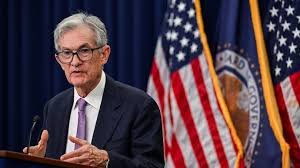
US Federal Reserve Chair Jerome Powell made it clear on Thursday that he would not resign from his position early if asked to do so by President-elect Donald Trump. Speaking at a press conference following the announcement of a quarter-point interest rate cut, Powell emphasized that the structure of the Federal Reserve and its laws protect the independence of the institution, including provisions that prevent the firing of any of the seven governors.
Powell’s term as chair of the US Federal Reserve is set to end in 2026, but he reaffirmed his stance on maintaining his position despite ongoing criticism from Trump. During the presidential campaign, Trump repeatedly criticized Powell, whom he himself had appointed in 2018, accusing him of working in favor of the Democrats and not aligning his policies with the administration’s economic priorities. Trump had suggested in the past that he might replace Powell once his term as Fed chair expires.
In response to the media, Powell stated that his role at the helm of the Federal Reserve was protected by law, including the fact that firing a sitting governor is not permitted under any circumstances. Powell’s remarks are a reminder of the delicate balancing act that the Fed may have to navigate under the next administration, especially with Trump’s vocal criticisms of the central bank’s handling of interest rates.
Trump has also previously expressed interest in having more control over the Federal Reserve’s decision-making process, particularly in setting interest rates, even though such powers are currently not permitted under the Federal Reserve’s dual mandate, which tasks the bank with tackling both inflation and unemployment.
The Federal Reserve’s governors are nominated by the President, confirmed by the Senate, and serve 14-year terms. However, they can be appointed to complete the remainder of a term if a governor retires before their term expires. This allows Powell the possibility to continue serving on the board of governors even if he steps down as the chair, as his term would not end until 2028.
Sources By Agencies
 Digital Scoop India Official Platform of Digital Scoop India Featuring Latest & Best News #Articles #Bytes #Entertainment #DigitalScoopMagazine
Digital Scoop India Official Platform of Digital Scoop India Featuring Latest & Best News #Articles #Bytes #Entertainment #DigitalScoopMagazine



